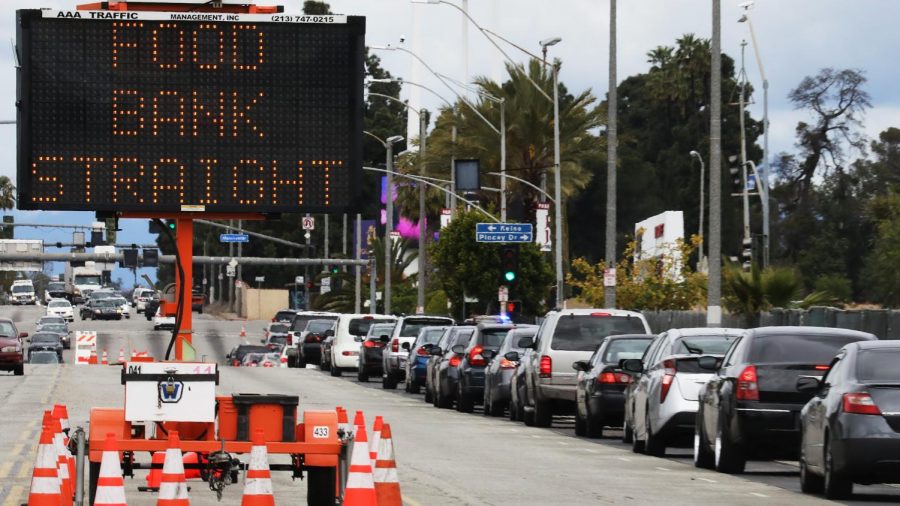Food Insecurity Amidst a Pandemic: A Crisis Within a Crisis
Cars stretch for miles outside a California food bank during the coronavirus pandemic.
With the economic turmoil and millions of job losses due to the coronavirus pandemic, a record number of Americans face food insecurity this holiday season. The pandemic has exacerbated issues already present in America’s food insecurity crisis, significantly affecting those already experiencing financial hardship.
According to a report by the Feeding America Organization, about 37 million (10.1%) Americans faced food insecurity pre-pandemic. However, a recent update to that report found the number jump to a staggering 50 million (15.6%) food-insecure Americans. The South is the hardest hit region, with Mississippi, Arkansas, and Alabama projected to have the country’s highest food insecurity rates.
Andrea Casey, Director of the Arrupe Center for Justice at Jesuit High School, contends that the pandemic’s sudden grasp and uncertainty are to blame for the spike in food insecurity.
“A lot of new families are experiencing food insecurity because of sudden loss of job, business instability, etc.,” Casey said. “A lot of progress to fight food insecurity has been reverted in the past nine months.”
Furthermore, the pandemic has exacerbated issues for those already vulnerable to food insecurity, Casey said. People working a minimum wage job, facing reduced hours, or struggling to make ends meet are now facing even more obstacles to gain food stability.
Casey has witnessed the pandemic’s effects on the food crisis as one of the coordinators for Jesuit Portland’s annual Food Drive. Although there are multiple logistic challenges of organizing a food drive amidst a pandemic, Casey has worked tirelessly to make a food drive possible. In total, Casey estimates that Jesuit Portland will support over 300 local families with grocery store gift cards (and 88 of those families will also receive gifts) and hundreds more with non-perishable foods going to local food pantries.
Efforts such as the Jesuit Food Drive and other local initiatives are especially needed in Portland, as the city battles an alarmingly high food insecurity rate. A report from the Oregon Food Bank found that over 550,000 (14.6%) Oregonians face food insecurity, with the majority stemming from the greater Portland area.
With such staggering local and national numbers, Casey stresses the need to support those most vulnerable in our communities. Casey is also a firm believer in community action, reminding us that all support—big or small—has a tangible impact.
“I encourage people to ask ‘what can I do?'” Casey said. “Especially during a pandemic, people can get hung up on what they can’t do. Instead, think about what is a reasonable ask. Is there something you can give up to support others during these difficult times?”









